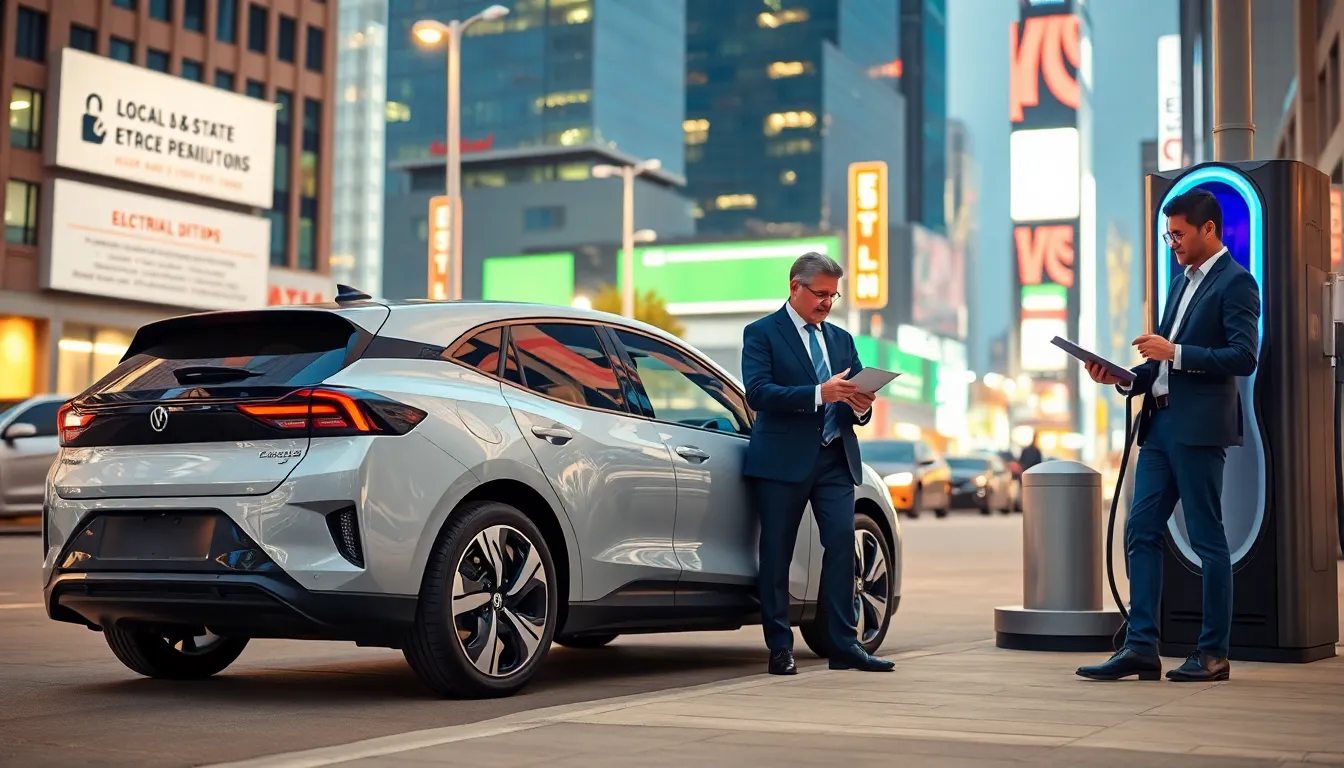Table of Contents
ToggleElectric vehicles (EVs) are not just quiet, eco-friendly marvels: they’re also significant players in the automotive game. But before you hit the road, it’s crucial to understand whether your electrifying ride is street legal. Think of it as dressing your EV in a shiny coat of legality that allows it to cruise freely on highways and byways. In this guide, we’ll spark your interest in what it really means for electric vehicles to be street legal, lightening up the serious aspects with a dash of humor and plenty of insights. Let’s rev up those engines and immerse.
Understanding Street Legality of Electric Vehicles

Before delving into the nitty-gritty details, it’s crucial to establish what being “street legal” actually means for electric vehicles. Street legal vehicles are ones that meet specific government regulations allowing them to operate on public roads. This status isn’t just a mere sticker you slap on your car: it’s a blend of safety standards, environmental policies, and, let’s face it, a bit of bureaucratic red tape. The good news? More jurisdictions are rapidly updating their regulations to welcome the growing tide of electric vehicles, making it easier than ever to consider going electric.
Requirements for Street Legal Electric Vehicles
What does it take for an electric vehicle to wear its street-legal badge with pride? It’s not quite as simple as plugging it in and hitting the gas. Generally, there are several key requirements that most jurisdictions share:
- Insurance: First off, your electric vehicle needs to be insured. You wouldn’t drive around without car insurance, right? This requirement varies by state but always includes a minimum amount of liability coverage.
- Registration: Don’t forget about the not-so-fun process of registration. You’ll have to register your EV with your local Department of Motor Vehicles (DMV). Just think of it as getting a VIP pass for your electric ride.
- Compliance with Emissions Standards: While electric vehicles produce zero tailpipe emissions, they still need to comply with any existing local or state emissions standards, which mostly pertain to their manufacturing process.
- Safety Equipment: Safety features like headlights, brake lights, turn signals, and mirrors are critical. Ensure your electrifying ride comes equipped with these necessities, or else you might be riding solo on a quiet road.
State and Local Regulations
Ah, the joy of navigating state and local regulations. Just when you think you understand the rules, you remember that each state has its own set of regulations about electric vehicles. For instance, California is known for its progressive stance on EVs, offering generous tax incentives and rebates. New York follows closely behind with similar programs.
On the flip side, other states might have stricter rules or even don’t readily support electric vehicle infrastructure. It’s wise to check with your local transportation department or their website for specifics. Some crucial factors to look for include:
- Charging Infrastructure: Is there adequate public charging available? This can greatly influence how viable owning an EV is in your location.
- Incentives and Rebates: Some states offer financial incentives to ease the transition. Finding these can make the leap to an electric vehicle much more enticing.
- Local Restrictions: Certain cities might have rules that affect where you can park or charge your electric vehicle, so doing your assignments is essential.
Benefits of Driving Street Legal Electric Vehicles
Choosing to drive a street-legal electric vehicle comes with an array of benefits that might just make you consider plugging into the future:
- Environmental Impact: Let’s not beat around the bush, driving an electric vehicle means you’re doing your part for Mother Earth. Lower emissions lead to a healthier planet.
- Operating Costs: Generally, EVs have lower operating costs compared to traditional gas vehicles. That means more savings for you.
- Performance: Electric vehicles often deliver instant torque, which offers a zippy, fun driving experience, who doesn’t love that exhilarating speed?
- Incentives: Many state and local governments provide rebates, tax credits, and other incentives for owning and operating electric vehicles. Who wouldn’t want to save a chunk of change while helping the planet?
Challenges and Considerations
But, it’s not all sunshine and rainbows for electric vehicle owners. There are challenges to consider when looking at street legality:
- Charging Accessibility: If you live in an apartment or a place without dedicated charging, this can be a significant hurdle. Finding public charging stations might feel like a scavenger hunt at times.
- Range Anxiety: Some drivers worry about how far they can go on a single charge. Although modern EVs have better ranges than ever, it’s still a valid concern for many.
- Initial Costs: While prices are dropping, some electric vehicles can still be more expensive upfront compared to traditional gas vehicles. Balancing this with long-term savings is key.
Future of Electric Vehicles and Street Legality
As technology continues to evolve, the future outlook for electric vehicles promises a world of excitement. Many experts believe the road will only get smoother for electric vehicle owners.
Increased investment in charging infrastructure and advancements in battery technology are key trends. The push for more sensational electric models from multiple automakers also signals a shift in the automotive landscape, a revolution that may pave the way for electric vehicles becoming a standard on roads everywhere. Besides, emerging regulations could increasingly favor EVs, reinforcing the push for eco-friendliness.
So whether you’re an early adopter or just curious about making the switch, keep your eyes peeled: the future of electric vehicles appears bright.







